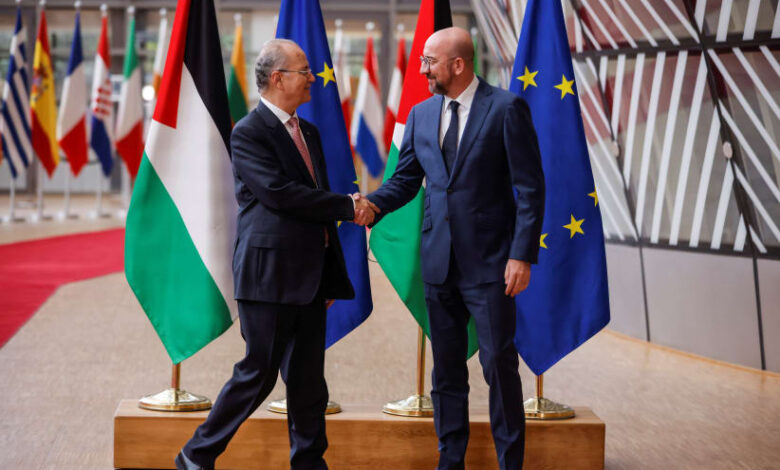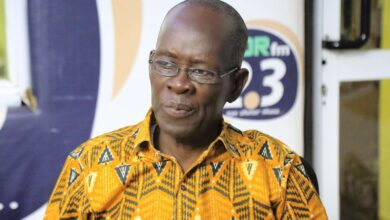
Palestinian Prime Minister Mohammad Mustafa met European Council President Charles Michel on Sunday in Brussels as part of a visit to the heart of EU institutions.
Earlier Sunday, Mustafa met with Norwegian Foreign Minister Espen Barth Eide who officially gave him recognition of the State of Palestine papers.
Mr Mustafa was in Brussels to meet with international partners including EU Foreign Policy chief Josep Borrell and Norway’s Foreign minister who handed over the official papers for recognition.
He says the Palestinian Authority is preparing to be the government of the future state of Palestine – including Gaza.
“The first priority is to support our people in Gaza. They need every support we can. And I think the best support we can all do for them is to speed up the ceasefire. Every day represents a major loss of human lives and properties and hope for our people,” said Mohammad Mustafa, the Prime Minister of the Palestinian Authority.
He also met with Spanish Foreign Minister José Manuel Albares and EU High Representative, Josep Borrell.
Meanwhile, the Spanish Foreign Minister José Manuel Albares says his country won’t be intimidated by Israel’s response to recognition of Palestine after Israel announced it would no longer allow Spanish NGO’s work in the West Bank.
“Our goal is to recognize the State of Palestine tomorrow and make every possible effort to achieve a permanent cease-fire as soon as possible, and ultimately, to reach that definitive peace. That is what is currently focusing our attention, what is important, and what has centered our conversation in the previous meeting and the attack mentioned, I believe that what it does is underline what the International Court of Justice has indicated,” said José Manuel Albares Bueno, the Spanish Foreign Minister.
Norway, Spain and Ireland last week agreed to recognize a Palestinian state in a move welcomed by Palestinians as an affirmation of their decades-long quest.
Israel recalled its ambassadors to the three countries in protest.
Several European Union countries argue a two-state solution is essential for lasting peace in the region.




